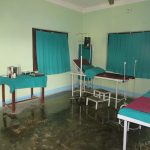Suzy Wignall (Clinical Governance Advisor – Research Development & Support) and Juan Campos-Perez (Clinical Research Coordinator – Bournemouth University Clinical Research Unit) have compiled a checklist (PDF and word formats) that can be used to support researchers through the process of applying for and conducting clinical research.
The document contains links to various documents and further resources to guide researchers through areas such as applying for external approvals, running the study and closing the study. The checklist clearly sets out what tasks are required, the support/resources available to complete this tasks, a space to write your own notes/how this task was resolved and the date it was completed. Using this document will help you ensure that all the required tasks are completed during your research journey.
The document is also here on the Clinical Governance blog.
Remember – support and guidance is on offer at BU if you are thinking of conducting clinical research, whether in the NHS, private healthcare or social care – contact details for Suzy and Juan are on the checklist, and you can also take a look at the Clinical Governance blog for resources and updates.











 ESRC Festival of Social Science 2024 Open Call – Deadline for Applications Thursday 16 May
ESRC Festival of Social Science 2024 Open Call – Deadline for Applications Thursday 16 May We can help promote your public engagement event or activity
We can help promote your public engagement event or activity New Seed Fund for Public Engagement with Research: Last Six Funding Opportunities Available
New Seed Fund for Public Engagement with Research: Last Six Funding Opportunities Available Congratulation on new interdisciplinary publication
Congratulation on new interdisciplinary publication BU professor speaking at Aberdeen Centre for Women’s Health Research (ACWHR)
BU professor speaking at Aberdeen Centre for Women’s Health Research (ACWHR) New seed fund for public engagement with research: open for applications
New seed fund for public engagement with research: open for applications Horizon Europe News – December 2023
Horizon Europe News – December 2023